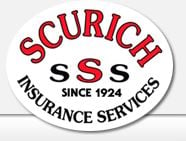
Warmer weather means more people enjoying outdoor activities. But extreme temperatures have killed more people in recent years than other natural disasters combined.1 Between 1999 and 2009, an average of 658 heat-related deaths occurred per year.2
Turning the Heat Down – Preventing Heat Stroke and Heat Exhaustion
Whether you are working or playing in the sun, the risk of heat exhaustion and heat stroke increases with the temperature.
The following tips can help you stay safe:
- Drink ample cool water throughout the day. Avoid excessive alcohol and caffeine, soda or fruit juice. 3
- Wear a hat and light-colored clothing. 4
- Try to limit exertion to cooler periods of the day.
- Take frequent breaks and rest if feeling weak.
- Be aware that some medications may make you more vulnerable to sun and heat exposure.
- If air temperature is higher than 95° F, fans will be ineffective and air conditioning should be used instead.
- Apply wet towels or headbands to help beat the heat.
- Help replace lost fluids from your body with water or sports drinks.5
Heat Injury – Know the Warning Signs
Heat exhaustion and heat stroke are the most common problems when the body is exposed to excessive temperatures.6
Heat exhaustion results when you spend long periods of time exposed to high temperatures and your body gets too hot.
Symptoms
Symptoms of heat exhaustion can include, but are not limited to:
- Dizziness
- Weakness
- Headaches
- Blurred vision
- Nausea
- Staggering
- Paleness
- Profuse sweating
- Weak pulse
- Faint breathing
- Unconsciousness
Treatment
The following tips can help treat heat exhaustion:
- Go to a shady location or a room with air conditioning
- Lie down and stay calm
- Take frequent small sips of cool water or a sports drink
- Call the doctor if symptoms persist as heat exhaustion can quickly become heat stroke.
Heat stroke can potentially be life threatening since it can cause you to lose the ability to sweat and control body temperature.
Symptoms
Symptoms of heat stroke can include, but are not limited to:
- Severe headache
- Face is red and skin is hot and dry
- No sweating
- Pulse is strong and very fast
- Vomiting and diarrhea
- Fever
- Confusion
- Convulsions
- Unconsciousness
Treatment
- If you believe a co-worker or loved one is suffering from heat stroke,call 911 immediately and follow directions given by emergency personnel. Move the person to a room with air conditioning or to the shade to help cool him or her and loosen his or her clothing.
Read more
 The arrival of summer means days at the pool, family barbeques, picnics, sports and other outdoor activities. Follow these tips this summer to keep your whole family happy and healthy:
The arrival of summer means days at the pool, family barbeques, picnics, sports and other outdoor activities. Follow these tips this summer to keep your whole family happy and healthy:
Staying active in the summer months
The arrival of spring and summer means days at the pool, family picnics, baseball and other outdoor activities. Here are some tips to keep your family physically active in the warmer months:
- Hydrate! Drink plenty of water before, during and after physical activity to avoid dehydration. For low-calorie flavor, add slices of your favorite fruits such as melon, oranges, berries or even cucumber or mint to a pitcher of water and refrigerate for two hours.
- Protect your family from the sun: wear wide-brimmed hats, always apply water-resistant sunscreen with at least SPF 15 and reapply sunscreen every 2 hours.
- Heat safety: avoid intense activities between noon and 3 p.m. when the sun is at its strongest.
- Dress for the heat: wear lightweight, light colored clothing, choose light, breathable fabrics such as cotton, and wear sunglasses to protect your eyes.
- Head indoors: when the heat gets unbearable, try indoor activities at your local YMCA or rec center like basketball, swimming, yoga or racquetball.
Heart-Healthy Cookout Ideas
Warmer weather may mean it’s time to break out the grill, here are some tips and ideas for a healthier grilling cookout:
- Go fish! Fish, especially oily fish like tuna and salmon have great nutritional benefits including omega-3 fatty acids. Rub a fillet with lemon juice and parsley or rosemary for enhanced flavor.
- Make a better burger: if you’re grilling burgers, be sure to buy lean or extra lean beef, drain off the excess fat after cooking and avoid making huge patties – remember that a serving of meat is about the size of a deck of cards (3 oz). Add finely chopped green pepper to your beef to get in some veggies.
- Baked fries: Slice white or sweet potatoes into sticks, lightly spray with olive oil cooking spray, pepper and paprika and bake on a cookie sheet for 40 minutes at 375 degrees.
- Veggie kabobs: load up skewers with mushrooms, peppers, cherry tomatoes, zucchini, yellow squash or other veggies. Spray lightly with olive oil cooking spray and grill until slightly blackened.
- Try grilled corn on the cob: leave the husks on, and grill for about 30 minutes over medium flame, rotating occasionally. Remove from grill, let cool for about 5 minutes, remove husks and enjoy!
Healthy Road Trip
Road trips can take a toll on everyone – here are some ideas to keep things healthier while on the open road:
- Make “rest breaks” active: pick a road stop or park and get the family out of the car to take a brisk 10-minute walk and move around. Not only will it burn off some energy, but it can also help the driver feel rejuvenated and more alert.
- Pack healthy snacks: finding healthier snacks at road stops can be difficult. Pack apples, grapes, raisins, whole grain fiber-rich crackers or another favorite low fat, low sodium healthy snack to take with you.
- Pack to play: plan to incorporate regular physical activity into your daily routine while you’re away from home. Pack a football, soccer ball, Frisbee, or paddle balls so that you can be physically active throughout your downtime.
- Reach for water: sitting in the car for long periods of time can make it tempting to drink soda, which has extra calories and added sugar. Pack water (flavored or regular), fat free or lowfat (1%) milk and small portions of 100% juice to quench your thirst.
Summer Snack Ideas
Try some fun and refreshing summer snacks that the entire family can enjoy:
- Fruit pops: Homemade freezer pops are an easy, fun treat for kids to make. Mash up fruit like peaches, grapes, berries or watermelon and put them in paper cups, insert a popsicle stick, freeze overnight and enjoy!
- Cool and crisp: keep a variety of colorful veggies on hand that stay cool and crunchy for a refreshing treat – baby carrots, cucumber slices, and celery sticks are just a few ideas.
- Fruit smoothies: blend your favorite fresh fruits with fat-free or low-fat yogurt and ice for a refreshing drink or freeze and eat with a spoon like a frozen ice chill.
- Mix it up: make your own trail mix using your favorite unsalted, oil free nuts, seeds and dried fruits (just be sure to keep your servings to 1.5 ounces or 1/3 cup).
- Just slice and serve: summer months are peek season for most fruits, just slice and serve – the whole family will enjoy the refreshing natural sweetness and juices just the way nature made ‘em!
Enjoy your summer, the healthy way!
Content provided by https://www.heart.org/HEARTORG/GettingHealthy/NutritionCenter/HealthyEating/Summer-Tips-for-a-Healthy-Heart_UCM_303868_Article.jsp
Read more
Whether your friend or family member is newly diagnosed or in the midst of treatment, she’s unlikely to be wowed by vague offers or having to do your thinking for you. She has enough on her mind; she has cancer. She may not want that tuna casserole or to hear about what treatment your Aunt Phyllis had either.
So how can you help? There is no one-size-fits-all answer. That’s why we turned to survivors for our list of support dos and don’ts. Our patient-generated advice is sorted into three stages — Diagnosis, Surgery & Treatment, andRecovery — identified by Maureen Broderick, a licensed clinical social worker who has worked with cancer patients and run cancer support groups. Here’s what you need to know.
Learn To Listen
“One of the most important ways a friend supported me was by listening to me as I decided what to do,” says Orinda, Calif. writer Victoria Irwin, 57, who had a lumpectomy and radiation earlier this year. “When I was in decision-making mode, it’s all I could think about or talk about. My friend listened to me over and over again. I think she learned more than she ever wanted to, and she helped me formulate the questions I needed to ask at doctor’s appointments,” she says. “She didn’t give advice, but acknowledged the difficulty of the situation. That listening was the most helpful thing she could have done.”
Be An Advocate
A year after having a stroke, New Jersey homemaker Florence Tweel, 55, was diagnosed with breast cancer. Her first concern was her children, who were 12 and 15.
“I needed all of my strength to focus on how I was going to get through this and tell my children,” Tweel says. “I was lucky to have a friend, Linda, who went with me to every appointment. She wouldn’t let me out of her sight. It wasn’t my job to understand anything that was being told to me medically because she took notes on it and we’d go back to her husband, who is a doctor, to get advice.” Linda’s support gave Tweel the energy to be at her best with her family and get the treatment she needed. “She was a Godsend,” she says.
Follow Online
A great way to help a breast cancer patient is to visit their page on a site like Mylifeline.org, Caringbridge.org, Lotsahelpinghands.com, or Carepages.com(or help them set one up if they don’t have one). Such sites let people (or friends or family) build private or public communities where patient updates and schedules can be shared, says Broderick.
People can ask for and get the kind of help they really want and need. Survivor Anne Steele, 51, Hermosa Beach, California, who had chemo, a lumpectomy, and radiation, for example, liked having companions with her during chemo while Victoria Irwin, who spent her chemo time in solitary pursuits like reading, preferred to save friends’ graciousness for another time.
Read more here.

Scurich Insurance Services has proudly served the Monterey Bay area since 1924. Scurich will take care of all of your insurance needs. Are you a business owner, did you get a new car or maybe you are looking to protect your family in the event of a tragedy? Give us a call, we can help!
We are located at:
Scurich Insurance Services
320 East Lake Avenue, PO Box 1170
Watsonville, CA 95077-1170
Office: 1-831-722-3541
Toll Free: 1-800-320-3666
Website | Facebook | Blog | LinkedIn
Information provided by: http://www.huffingtonpost.com/2013/10/07/how-to-help-breast-cancer-patients_n_4031150.html
Read more



